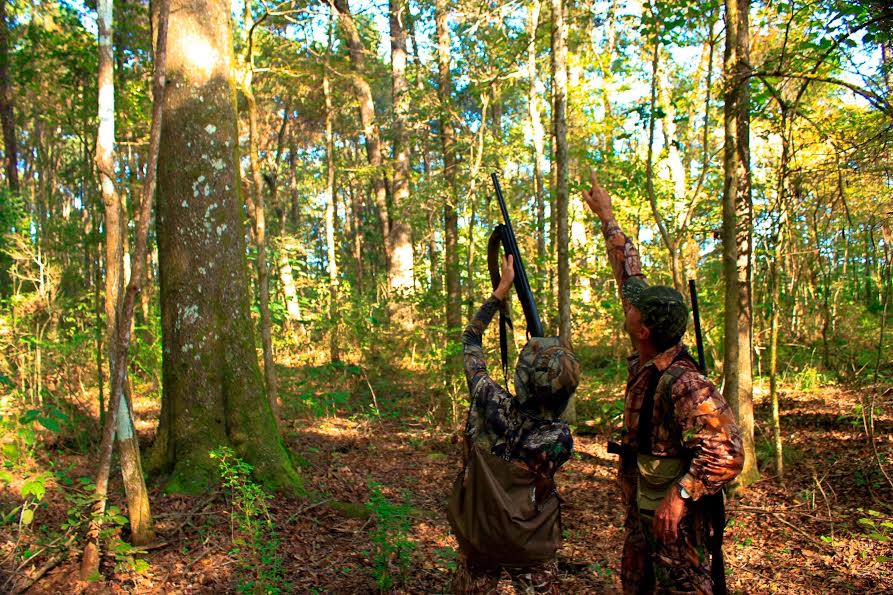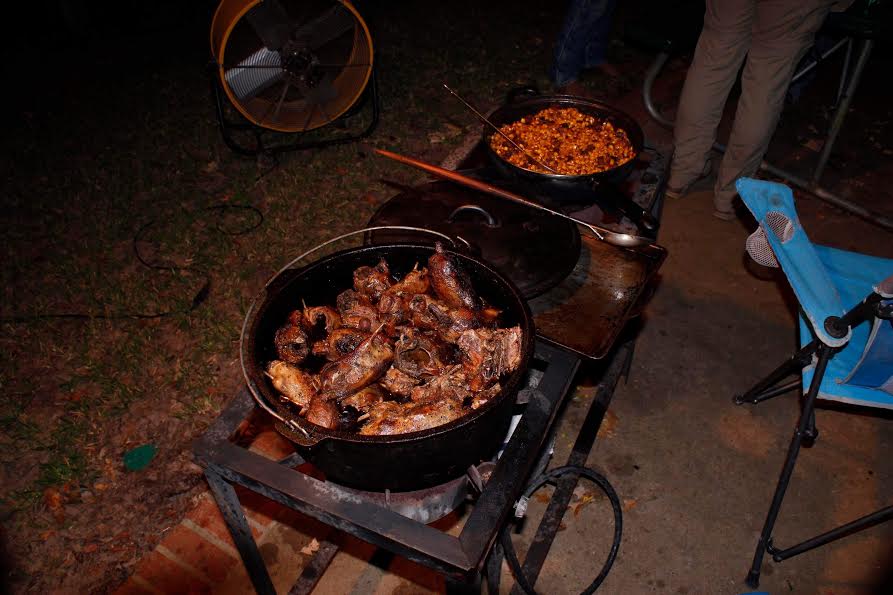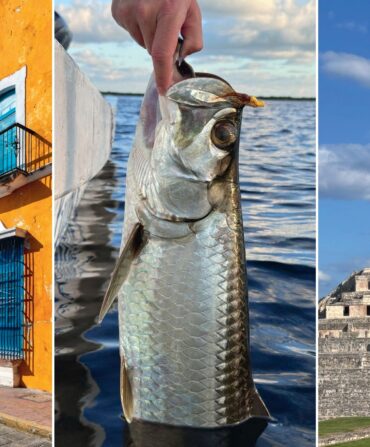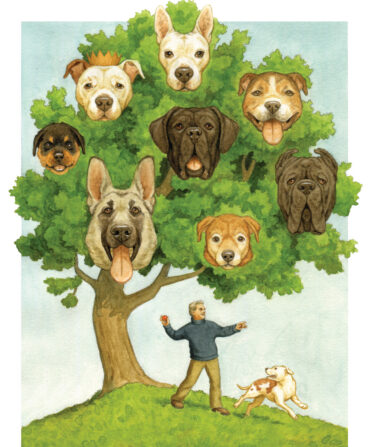In polite company it’s called “Budget Day,” a nod to the local school system’s nomenclature for the first Friday in October. But everyone knows that’s just putting lipstick on an arboreal rodent. Most folks can’t remember when schools in Louisiana’s Evangeline Parish began closing on the Friday before the opening day of squirrel season, the first Saturday in October, because so many students and teachers were going AWOL. The day has long been enshrined as “Squirrel Day,” and the parish seat of Ville Platte still goes a little nutty. On Squirrel, er, Budget Day, many of its 7,000 citizens head for the woods. Families crowd into old hunting camps along bayous and cypress-clad lakes. Some might hold four generations, and the lilting tones of Cajun French season the atmosphere. In town, Friday night football games are pushed to Thursday night. Banks and businesses close.

Photo: Julien Fontenot
A father and son take to the woods near Ville Platte, Louisiana, on the opening weekend of squirrel season.
“It’s crazy,” says Ike Launey, of Industrial Supply, a sporting goods and hardware store in Ville Platte. “The men are all gone to the woods, and more and more women are heading out with them.” Launey is 55 years old, and he’s missed only a single Squirrel Day since he was 10. This year he’ll be out with his two sons, two nephews, a brother and his grandson, and his brother-in-law. “I’d bet half the people in town head for the woods this weekend,” he says. “You can’t keep us out of the woods for the squirrel opener, no way.”
The community’s devotion to squirrel hunting goes back centuries. Cajuns are the descendants of French-speaking Catholics who were expelled from Acadia, a French colony in Nova Scotia, and when the first families arrived in Louisiana in the 1760s, they found a forbidding wilderness waiting. Each received a paltry store of tools and goods—a gun and ammo, a saw or axe, a few chickens and bags of corn—and were pushed into the woods. Abundant wildlife, including gray and fox squirrels, kept them alive and nourished as their toehold along the bayous turned into the deep roots of Cajun culture.

Photo: Julien Fontenot
Teal cooking at a hunt camp, a popular meal the night before the squirrel opener.
Now the weekend is celebrated as a sort of Cajun Passover, part family reunion, part cultural festival, and community tradition through and through. Once, the radio host Paul Harvey chastised the town for letting something as lowly as écureuil—the Cajun French term for “squirrel”—circumvent the education of its children. But it’s a good bet he’d never seen a grandmother and her granddaughter stalk fox squirrels shoulder to shoulder in the big oaks. Or worked through a cast-iron Dutch oven of squirrel étouffée while the accordions play.
“You got two kinds of gravy you can cook with the squirrels,” Launey says. “Brown gravy with the onions, or what we call naked gravy. Just the squirrel, some water, and a little flour to hold it all together. Most of us around here will eat all we can find.”
T. Edward Nickens is a contributing editor for Garden & Gun and cohost of The Wild South podcast. He’s also an editor at large for Field & Stream and a contributing editor for Ducks Unlimited. He splits time between Raleigh and Morehead City, North Carolina, with one wife, two dogs, a part-time cat, eleven fly rods, three canoes, two powerboats, and an indeterminate number of duck and goose decoys. Follow @enickens on Instagram.







